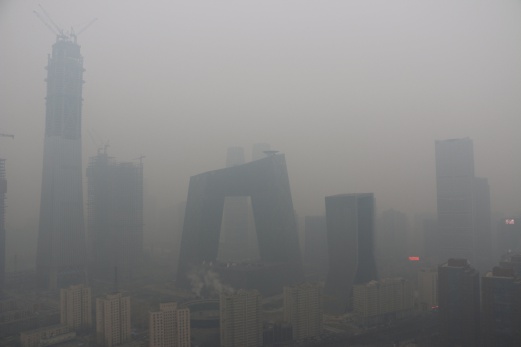BEIJING: Tougher law enforcement has reduced the number of environmental offenders in Beijing in recent years, but more companies need to adapt to the emissions standards in China’s capital, its environmental inspection squad says.
Beijing has been on the frontlines of a “war against pollution” declared by Premier Li Keqiang in 2014, as part of a central government promise to reverse damage done by decades of growth, and strengthen powers to shut down and punish polluters.
With more than 500 environmental inspectors working to identify offenders, thousands of companies have been investigated and punished in the past four years.
But beyond simply enforcing standards, the squad faces the critical task of persuading more firms of the value of protecting the environment, said Wang Yankui, the chief of Beijing’s central environmental inspection squad.
“The difficulty we face now is how to influence more companies to actively make improvements for the sake of environmental protection,” Wang added. “Some companies have this intention, but they don’t know how to do it.”
Besides dealing with violators, the inspectors also keep tabs on “model” companies that have already adopted city standards.
The squad runs a hotline for city residents to report potential polluters, who could eventually join its network of identified offenders.
“If we don’t obey the rules, then we might be penalized, or shut down,” said Li Qiang, an official of a car finishing factory on the outskirts of Beijing, which has managed to keep pace with changing environmental standards for several years.
“As a business, survival needs profits, and profits are made under the pre-condition that we abide by the provisions or requirements of the government.”
Cars, not industries, are Beijing’s primary polluters, the national environmental protection bureau said this month, blaming vehicles for more than 31 percent of harmful emissions. Authorities have responded by clamping down on the number of vehicles on the road when smog alerts are issued.
But most of the smog originates from polluting industries in surrounding provinces that must be convinced of the need to obey the law, said Greenpeace campaigner Dong Liansai.
“If we only rely on the basic law enforcement authorities and polluting companies to play some sort of cat-and-mouse game, then there may be no way of solving the current pollution problems,” he added.
While many of Beijing’s polluting industries have moved to other provinces, Wang said local authorities have jurisdiction and enforcement is up to them. Some Beijing residents fear the government’s environmental policies will fail if they ignore polluters in surrounding areas.
“I think (Beijing’s) current policies are to treat the symptoms but not the cause,” said Zhou Gesun, a technician working in the information technology industry.
There is only minor payoff from efforts such as odd and even licence-number curbs on vehicle use, and halting work on construction sites, he added.
“The big factors are the areas surrounding Beijing, for instance, heavy industrial factories in Hebei. I think they should bring these factories under their control.”
Besides the squads, Beijing will set up a police force to specifically target environmental offences and polluting activities including open-air barbecues and garbage and biomass burning, the capital’s acting mayor, Cai Qi, said this month.
-Reuters







